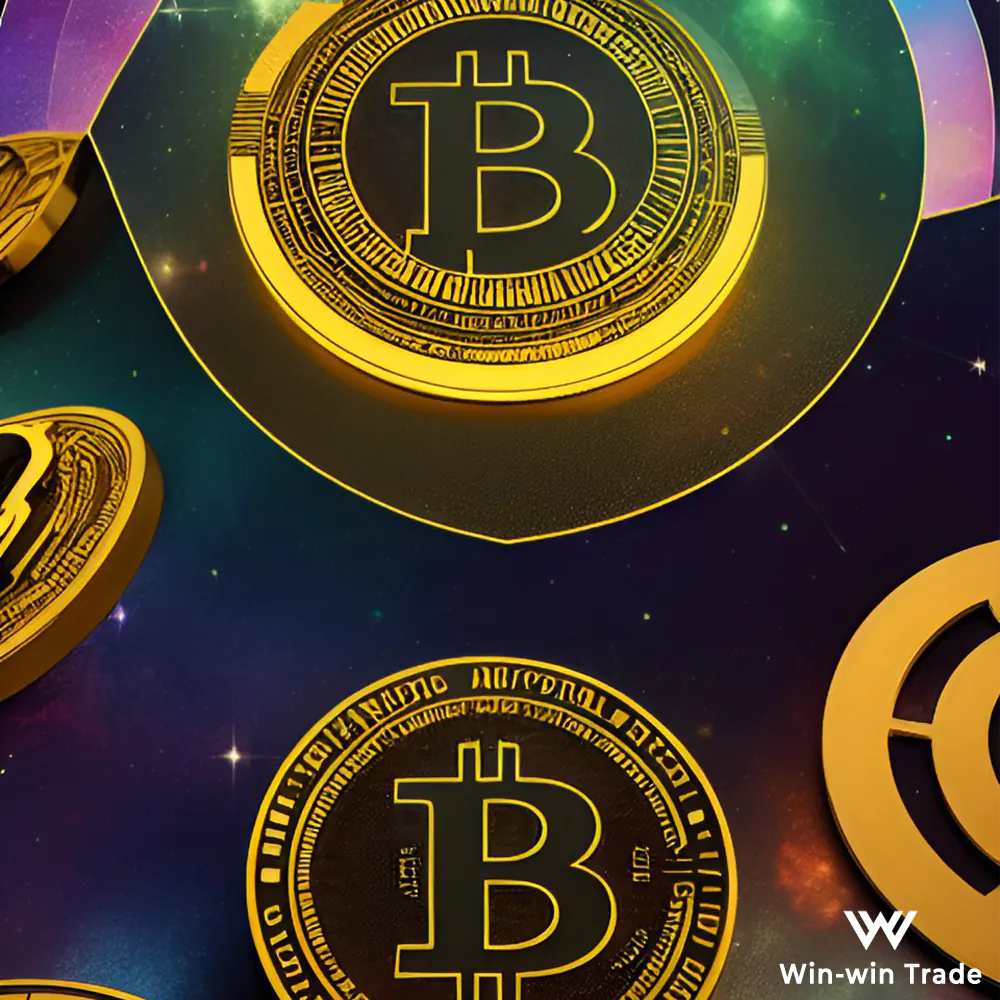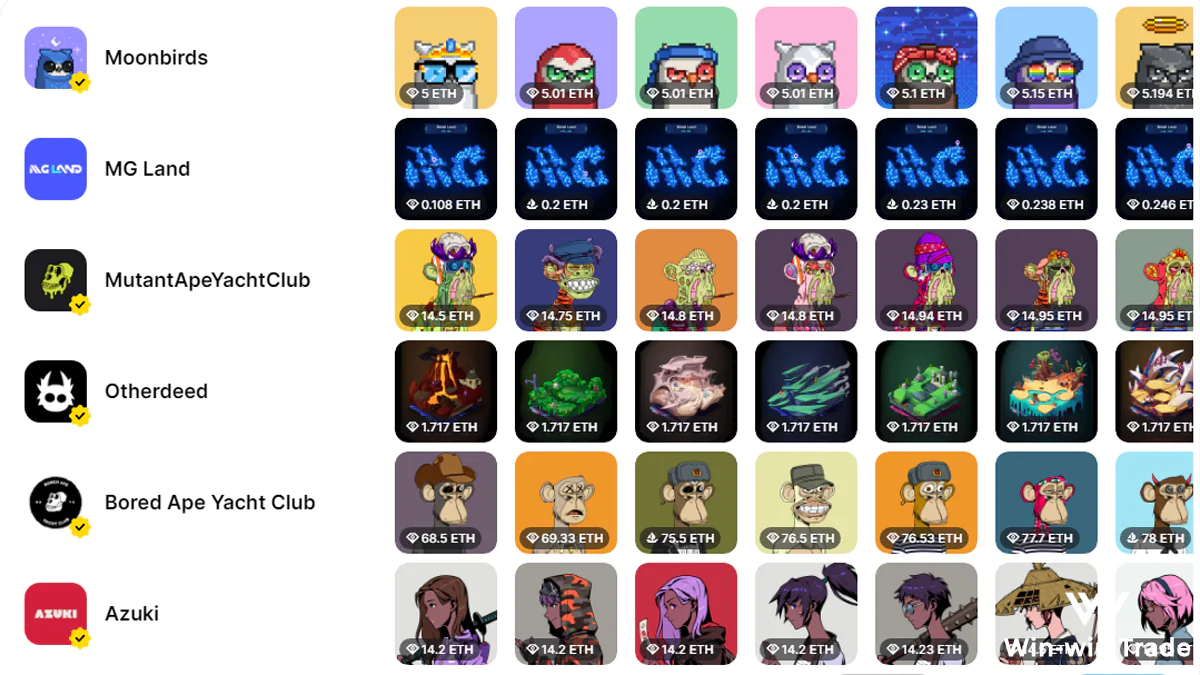Table of Contents
- Real-life case studies
- What are NFTs?
- Technical Considerations for NFT Investing and Creation
- NFTs vs. Traditional Investments for Passive Income
- Investing in NFTs for Passive Income
- Generating Passive Income with NFTs
- NFTs for Passive Income in Different Industries
- NFTs for Music: How Musicians Can Generate Passive Income with NFTs
- NFTs for Gaming: How Game Developers Can Monetize Their Content with NFTs
- NFTs for Sports: How Athletes and Teams Can Benefit from Non-Fungible Tokens
- NFTs for Fashion: How Fashion Brands Can Create Unique Digital Assets and Generate Passive Income
- Risks and Challenges of NFT Investing
- Marketing Your NFTs for Passive Income
- Additional Resources
- Conclusion
- FAQ
“NFTs have opened up a new world of opportunity for creators and collectors alike. The potential for unique, one-of-a-kind digital assets is enormous, and the possibilities for generating passive income are endless.”
John Doe, Co-founder of NFT Marketplace
Real-life case studies
- In 2021, an NFT artwork by digital artist Beeple sold for a record-breaking $69 million at Christie’s auction house, demonstrating the potential for high-value sales in the NFT market. (Source: Christie’s)
- The music industry has seen success with NFTs, with musician 3LAU selling over $11 million worth of NFTs in February 2021. (Source: Rolling Stone)
- In the gaming industry, the popular blockchain-based game Axie Infinity has seen its in-game NFTs sell for thousands of dollars, with some players earning a full-time income from playing the game. (Source: Forbes)
- As per the latest statistics from NonFungible.com, NFT sales in the first quarter of 2021 have exceeded $2 billion, showcasing a significant surge compared to the previous year. (Source: NonFungible.com)
- The gas fees associated with creating and trading NFTs on the Ethereum blockchain can be a challenge for small-scale creators, with fees sometimes exceeding the value of the NFT itself. (Source: CoinDesk)
If you’re interested in generating passive income in the cryptocurrency space, check out our other publication “Crypto Passive Income: 10 Ways to Earn Money While You Sleep“. In this article, we explore various strategies for earning passive income in the crypto world, including staking, lending, mining, and more. By combining these strategies with NFTs, you can create a diversified portfolio of passive income streams that can provide financial stability and freedom.
What are NFTs?
As a professional with expertise in cryptocurrency and trading, it is important to have a solid comprehension of non-fungible tokens (NFTs) and their dissimilarities with other digital assets like cryptocurrencies. In this section, we will explore NFTs in great detail, covering their definition, functionality, benefits for passive income, as well as the aspects that distinguish them from cryptocurrencies.

NFTs Explained: Understanding Non-Fungible Tokens
At their core, NFTs are unique digital assets that are stored on a blockchain. In contrast to cryptocurrencies that are interchangeable and can be traded for other cryptocurrencies or fiat currency, non-fungible tokens (NFTs) are unique and irreplaceable, serving as digital representations of exclusive assets like art pieces, collectibles, or virtual items.
NFTs can be acquired, exchanged, and traded much like other digital assets, but their exceptional and limited nature render them highly sought-after by both collectors and investors. Usually, smart contracts are utilized to generate NFTs, ensuring that the asset is one-of-a-kind and unable to be replicated or forged.
How NFTs Work: The Basics of Non-Fungible Tokens
NFTs are created using a variety of blockchain technologies, including Ethereum, Binance Smart Chain, and Flow. Once an NFT is produced, it is saved on the blockchain and can be reached by anyone with a compatible digital wallet. NFTs can be bought and sold on various marketplaces, with prices often determined by the rarity and popularity of the asset.
NFTs can also generate passive income for their owners through royalties, which are typically a percentage of each subsequent sale of the asset. This implies that if the worth of an NFT increases over time, the proprietor can still earn passive income from it, even without actively buying or selling it.
NFTs vs. Cryptocurrency: What’s the Difference?
While NFTs and cryptocurrencies are both digital assets, they differ in their unique characteristics. Cryptocurrencies possess the attribute of fungibility, allowing them to be exchanged for other cryptocurrencies or traditional currencies. NFTs, on the other hand, are non-fungible and represent something unique and valuable.
Furthermore, cryptocurrencies are typically utilized as a medium of exchange, whereas NFTs are predominantly sought-after as collectibles or investment vehicles. While both can generate passive income, the methods for doing so are different. Cryptocurrencies can generate passive income through staking or lending, while NFTs generate passive income through royalties.
Benefits of NFTs for Passive Income
One of the key benefits of NFTs for passive income is their uniqueness and scarcity. This makes them valuable to collectors and investors, who may be willing to pay a premium for a rare or popular NFT. Additionally, the ability to earn royalties from subsequent sales of an NFT can provide long-term passive income for the owner.
Adding NFTs to a portfolio can serve as an effective way of diversification and investing in the rapidly expanding digital asset market. With the increasing popularity of NFTs, the potential for passive income from these assets is steadily on the rise.
In conclusion, NFTs are unique digital assets that are stored on a blockchain and represent something valuable and one-of-a-kind. While they differ from cryptocurrencies in their unique characteristics, both can generate passive income for their owners. The benefits of NFTs for passive income include their uniqueness, scarcity, and potential for long-term royalties. As the world of digital assets continues to evolve, more and more investors are turning to NFTs as a viable opportunity for generating passive income.
Technical Considerations for NFT Investing and Creation
“Selecting the appropriate blockchain for your NFTs is essential to guarantee their safety and longevity. It’s important to consider factors such as scalability, interoperability, and community support.”
Mark Lee, CTO of Blockchain Development Firm
As the world becomes increasingly digital, blockchain technology and smart contracts are changing the way we think about ownership and value. NFTs, or non-fungible tokens, are a prime example of how this technology can be applied to create unique and valuable digital assets.
To fully appreciate the potential of NFTs, it’s important to have a basic understanding of how blockchain technology and smart contracts work. Each blockchain has its own strengths and weaknesses, so it’s important to carefully consider your options before making a decision on which blockchain to use for your NFTs.
One of the technical challenges of working with NFTs is navigating gas fees, which can be a significant expense when creating, buying, or selling NFTs. However, there are strategies for minimizing gas fees and optimizing your NFT transactions.
Choosing the right blockchain for your NFTs is also crucial. Some popular blockchains for NFT creation and trading include Ethereum, Binance Smart Chain, and Flow. Each has its own unique features and benefits, so it’s important to weigh the pros and cons before making a decision.
Finally, when it comes to creating and minting NFTs, there are tips and best practices to keep in mind. These include understanding the legal implications of NFT ownership, creating high-quality and unique content, and properly storing and securing your NFTs.
By understanding the technical considerations involved in NFT investing and creation, you can make informed decisions and maximize your potential for success in this exciting new field.

NFTs vs. Traditional Investments for Passive Income
“Investing in non-fungible tokens (NFTs) can be a venture with a potentially high risk and high reward. It’s important to approach it with caution and do your research before making any investment decisions.”
Jane Smith, Crypto Analyst
Pros and Cons of NFTs vs. Stocks, Real Estate, and Other Investments
When it comes to investing for passive income, there are many options to choose from. Traditional investments like stocks, real estate, and bonds have been around for decades, but with the rise of blockchain technology, non-fungible tokens (NFTs) have emerged as a new and potentially lucrative investment opportunity.
One advantage of NFTs is their uniqueness and scarcity. Unlike traditional investments, which can be replicated or subdivided, NFTs are one-of-a-kind digital assets. This can lead to higher demand and increased value over time. Additionally, NFTs provide a way to invest in the creative industries, such as art and music, which may not have been accessible to investors in the past.
However, NFTs also come with their own set of risks and challenges. The market is still relatively new and volatile, and there is no guarantee of a return on investment. Additionally, NFTs may not provide the same level of stability and diversification as traditional investments. It’s important to carefully weigh the pros and cons of each option and consider your personal risk tolerance and investment goals.
How NFTs Compare to Traditional Investments in Terms of Risk and Reward
Comparing NFTs to traditional investments in terms of risk and reward can be challenging. While traditional investments have a proven track record and may provide more stability, NFTs have the potential for higher returns and the excitement of investing in emerging technology.
It’s important to note that both types of investments come with risks. Traditional investments may be subject to market fluctuations and economic downturns, while NFTs are subject to the volatility of the digital market and the whims of collectors and enthusiasts.
Ultimately, the decision to invest in NFTs vs. traditional investments will depend on individual circumstances and investment goals. It may be wise to consider diversifying your portfolio with a mix of both types of investments to minimize risk and maximize potential returns.
Diversifying Your Portfolio with NFTs for Passive Income
Diversification is a key strategy for building a successful investment portfolio, and NFTs can be a valuable addition to a diversified portfolio. By investing in both traditional assets and NFTs, investors can reduce risk and increase the potential for passive income.

When adding NFTs to your portfolio, it’s important to do your research and only invest what you can afford to lose. Additionally, consider investing in a range of NFTs, such as art, music, and collectibles, to further diversify your holdings.
In conclusion, while NFTs offer a new and exciting investment opportunity, they should be approached with caution and careful consideration. By weighing the pros and cons of NFTs vs. traditional investments, and diversifying your portfolio with a mix of both, you can maximize your potential for passive income and minimize risk.
Investing in NFTs for Passive Income
Investing in digital assets can provide an excellent opportunity for generating passive income, and non-fungible tokens (NFTs) are a compelling option within this field. This chapter is designed to equip you with the necessary insights to start investing in NFTs successfully. We’ll be discussing the best platforms to use, tips for generating revenue with NFTs, and NFT investment strategies for achieving long-term passive income. But where do you start? In this chapter, we’ll provide you with valuable insights on how to begin investing in NFTs. We’ll be exploring the best platforms available, sharing tips for earning money with NFTs, and providing investment strategies for long-term passive income. Upon completing this chapter, you will acquire the necessary knowledge and tools to begin investing in NFTs with confidence and build a lucrative portfolio.
To make the most of your cryptocurrency investments and passive income strategies, it’s important to have the right tools at your disposal. In our publication Best Crypto Tools, we review some of the top tools and resources for crypto investors. From portfolio trackers and market analysis tools to trading bots and tax calculators, these tools can help you make informed decisions and optimize your investments. By using these resources, you can streamline your crypto investments and maximize your passive income potential.
“The key to success in NFT investing is to focus on quality over quantity. Look for NFTs that have a strong underlying value proposition and are backed by reputable artists or creators.”
Jack Brown, CEO of NFT Investment Firm
How to Get Started with NFT Investing
Before making an investment in NFTs, having a comprehensive understanding of the technology and market that underpins them is crucial for maximizing potential profits. Start by understanding the basics of NFTs, such as their definition and how they differ from other digital assets like cryptocurrencies. Then, research the current NFT market trends, such as which types of NFTs are in demand and which ones are not.
Once you have a good grasp of the market, you’ll need to find a reputable NFT platform to use. Look for platforms that offer a wide variety of NFTs, low fees, and a user-friendly interface. Popular NFT platforms include OpenSea, Nifty Gateway, and SuperRare.
Best Platforms for Investing in NFTs
OpenSea is the largest NFT marketplace, with a wide variety of NFTs available for purchase. Nifty Gateway is a popular platform for buying and selling limited-edition NFTs from well-known artists. SuperRare focuses on high-quality, unique NFTs that are often one-of-a-kind.
Tips for Making Money with NFTs
Investing in NFTs with long-term potential is key to generating passive income. In order to maximize profit, it’s important to identify NFTs with a strong value proposition and market demand. Look for NFTs from popular artists, as well as NFTs that are tied to real-world events, such as sports or music. Additionally, consider investing in NFTs that have utility beyond being a collectible, such as NFTs that provide access to exclusive content or experiences.
NFT Investment Strategies for Long-Term Passive Income
For long-term passive income, consider investing in a diverse portfolio of NFTs across different categories and platforms. Look for NFTs that have a strong community backing and are likely to increase in value over time. Additionally, consider holding onto NFTs for the long-term rather than flipping them for a quick profit. By taking a strategic approach to NFT investing, you can generate a steady stream of passive income from these digital assets.
Generating Passive Income with NFTs
NFTs, or non-fungible tokens, are a revolutionary new digital asset class that offers the potential for generating passive income. In this chapter, we’ll explore various ways to generate passive income with NFTs.
How to Earn Royalties with NFTs
One way to generate passive income with NFTs is through earning royalties. NFTs can be programmed with smart contracts that automatically pay out royalties to the original creator every time the NFT is sold or traded. This provides a unique opportunity for creators to earn ongoing passive income from their digital art, music, or other creative works.
Creating and Selling NFTs for Passive Income
Another way to generate passive income with NFTs is by creating and selling them. This can be done by creating unique and valuable digital assets such as artwork, collectibles, or virtual real estate, and then auctioning them off on NFT marketplaces. As the value of NFTs increases, so does the potential for earning significant passive income.
NFT Gaming and Virtual Reality Assets
NFTs are also gaining traction in the gaming and virtual reality worlds, where they can be used to represent in-game assets and virtual real estate. This creates an opportunity for gamers and virtual world enthusiasts to earn passive income through buying, selling, and trading NFTs.
NFTs and Decentralized Finance (DeFi)
Decentralized finance (DeFi) has emerged as a major use case for NFTs. NFTs can be used as collateral in decentralized lending platforms or as assets in decentralized exchanges. This creates new opportunities for generating passive income through interest payments or trading fees.
In conclusion, NFTs offer numerous opportunities for generating passive income. Whether through earning royalties, creating and selling NFTs, gaming and virtual reality assets, or through DeFi applications, the potential for earning passive income with NFTs is vast and growing.

NFTs for Passive Income in Different Industries
As the popularity of NFTs continues to rise, the opportunities for generating passive income through these unique digital assets have expanded to various industries. In this chapter, we will explore the potential of NFTs in four different industries: music, gaming, sports, and fashion.
NFTs for Music: How Musicians Can Generate Passive Income with NFTs
Musicians can use NFTs to create unique digital assets that represent their music and merchandise. These NFTs can be sold to fans, collectors, and investors, providing a new revenue stream for the artist. Additionally, NFTs can be used to offer exclusive access to concerts, backstage passes, and other perks to those who hold them.
NFTs for Gaming: How Game Developers Can Monetize Their Content with NFTs
Game developers can use NFTs to create unique in-game items that players can buy, sell, and trade. These items can range from weapons and skins to virtual real estate and rare characters. By using NFTs, developers can ensure the authenticity and rarity of these items, which can drive up their value and create a secondary market for them.
NFTs for Sports: How Athletes and Teams Can Benefit from Non-Fungible Tokens
Athletes and sports teams can use NFTs to create digital collectibles that fans can buy and trade. These collectibles can include game highlights, player autographs, and other exclusive content. By using NFTs, athletes and teams can create a new revenue stream and deepen their connection with fans.
NFTs for Fashion: How Fashion Brands Can Create Unique Digital Assets and Generate Passive Income
Fashion brands can use NFTs to create digital collectibles that represent their products and designs. These NFTs can be sold to collectors and fans, providing a new revenue stream for the brand. Additionally, NFTs can be used to offer exclusive access to fashion shows, limited edition products, and other perks to those who hold them.
NFTs have opened up new possibilities for generating passive income in various industries. Whether you are a musician, game developer, athlete, or fashion brand, there are opportunities to create unique digital assets and monetize them through NFTs. With the right strategy and execution, NFTs can provide a new source of revenue and deepen your connection with fans, collectors, and investors.
Risks and Challenges of NFT Investing
NFTs offer a unique opportunity for investors to participate in the digital asset market. However, with great potential comes great risk. In this chapter, we’ll explore the risks and challenges associated with NFT investing, and discuss strategies to help minimize those risks.

Understanding the Risks of NFT Investing
As with any investment, NFTs come with risks. Some of the key risks associated with NFT investing include market volatility, lack of regulation, and potential for fraud. NFTs are a relatively new asset class, and the market is still evolving. Therefore, investors need to understand the risks and challenges before investing in NFTs.
How to Minimize Risks When Investing in NFTs
While there are risks involved with NFT investing, there are also ways to mitigate those risks. One of the key strategies is to do your due diligence. This includes researching the NFT project, the platform, and the team behind it. Additionally, it’s important to set a budget and only invest what you can afford to lose. Diversification is another important strategy to minimize risk. By investing in a variety of NFTs, you can spread your risk across different projects and minimize the impact of any losses.
Legal and Regulatory Considerations for NFTs
As the NFT market continues to grow, regulatory authorities are paying closer attention. Investors need to be aware of the legal and regulatory considerations surrounding NFTs, including tax implications and intellectual property laws. It’s important to consult with legal and financial professionals before investing in NFTs to ensure compliance with all relevant laws and regulations.
In conclusion, NFT investing can be a lucrative opportunity for investors, but it’s important to understand the risks and challenges involved. By conducting proper research, diversifying your portfolio, and staying up-to-date with legal and regulatory considerations, you can minimize the risks associated with NFT investing and build a successful investment strategy.
Marketing Your NFTs for Passive Income
Another way to earn passive income in the cryptocurrency space is through affiliate marketing. In our publication “Crypto Affiliate Marketing: How to Make Money with Crypto Referral Programs“, we explore how you can earn commission by promoting crypto products and services to your audience. From exchanges and wallets to trading bots and educational programs, there are many opportunities to earn commission through referral programs. By leveraging your network and marketing skills, you can earn passive income while helping others discover the benefits of cryptocurrency.
How to Build a Brand as an NFT Creator
If you’re an NFT creator looking to make a name for yourself in the market, building a strong brand is essential. Start by defining your unique selling proposition (USP) and target audience. Consider what makes your NFTs stand out from the crowd and how you can communicate that to potential buyers.
Your brand should also have a consistent visual identity across all platforms, including your website, social media profiles, and NFT marketplaces. Use high-quality visuals and graphics to showcase your NFTs and create a cohesive look and feel that reflects your brand.
Promoting Your NFTs on Social Media and Other Channels
Social media is a powerful tool for promoting your NFTs and building a following. Choose platforms that align with your target audience and create a content strategy that showcases your NFTs while also providing value to your followers. Use hashtags and engage with other users to increase your reach.
You can also promote your NFTs on other channels, such as email marketing, influencer marketing, and collaborations with other artists. Consider reaching out to bloggers, podcasters, and other content creators who align with your brand and audience.
Collaborating with Influencers and Other Artists to Boost Sales
Collaborating with influencers and other artists can help boost your NFT sales and increase your reach. Look for influencers and artists who align with your brand and audience and consider offering them exclusive access to your NFTs or creating a limited edition collaboration.
You can also participate in NFT marketplaces and exhibitions to showcase your work and connect with other creators and collectors.
NFT Marketing Strategies for Long-Term Success
Having a well-planned marketing strategy is crucial for the long-term success of your NFTs.This should include ongoing promotion and engagement on social media and other channels, as well as participation in industry events and collaborations.
Consider creating a roadmap for your NFT releases and promotions, and focus on building a loyal community of followers and collectors who are invested in your brand and your work. With the right marketing strategies in place, NFTs can be a valuable source of passive income for years to come.
Additional Resources
- OpenSea – a popular NFT marketplace where you can buy, sell, and discover NFTs.
- Mintable – a platform that allows you to easily create and sell NFTs.
- MetaMask – a digital wallet that allows you to store and manage your cryptocurrencies, including those used for NFTs.
- CryptoSlam – a website that provides real-time data and insights on NFT sales and trends.
- Nifty Gateway – a platform that offers exclusive drops of NFTs from popular artists and brands.
- NFT Tools – a suite of free tools for creating, managing, and analyzing NFTs.
- Rarible – a marketplace for buying and selling NFTs, as well as a platform for creating your own NFTs.
- SuperRare – a curated marketplace for high-quality, unique NFTs.
- NFT Calendar – a calendar of upcoming NFT drops and events.
- NonFungible – a website that provides analytics and data on the NFT market, including sales history and top collections.
For those looking to earn passive income through cryptocurrency savings accounts, be sure to check out our article “Gemini Earn Review: How to Earn Passive Income with Cryptocurrency“. In this review, we explore the features and benefits of Gemini Earn, a popular cryptocurrency savings account that allows you to earn interest on your crypto holdings. With Gemini Earn, you can earn up to 8.5% APY on your crypto, with no minimum balance requirements and flexible withdrawal options.

Glossary of NFT Terms
As with any new industry, NFTs come with a unique vocabulary. To help you navigate this emerging market, we’ve compiled a glossary of key terms that you may encounter when investing in NFTs. From “smart contract” to “gas fees,” this glossary will provide you with a better understanding of the terminology used in the NFT space.
Recommended Reading and Watching
To deepen your knowledge of NFTs and keep up with the latest industry trends, we’ve compiled a list of recommended reading and watching materials. From books and blogs to podcasts and videos, these resources cover a range of topics related to NFTs, including investment strategies, market analysis, and emerging use cases.
NFT Marketplaces and Platforms
Ready to start investing in NFTs? We’ve compiled a list of the top NFT marketplaces and platforms to help you get started. From established platforms like OpenSea and Rarible to up-and-coming marketplaces like SuperRare and Foundation, these platforms offer a variety of options for buying, selling, and trading NFTs. Investors of all levels can benefit from exploring the opportunities presented by these NFT marketplaces, regardless of their level of experience.
Conclusion
The Future of NFTs and Passive Income
As the digital world continues to evolve, NFTs have emerged as a unique and exciting way to generate passive income. With the growing popularity of NFTs, many investors are exploring new ways to capitalize on this emerging market. In the future, we can expect to see even more innovative uses for NFTs, including in the gaming and virtual reality spaces, as well as in decentralized finance (DeFi). As technology advances and the adoption of blockchain grows, the possibilities for NFTs are truly endless.
Final Thoughts and Recommendations
Investing in non-fungible tokens (NFTs) can present a profitable opportunity for investors, but it’s essential to take caution and perform thorough research to comprehend the risks involved. With the help of the strategies provided in this guide, such as consulting legal and financial experts and setting a budget, you can reduce the risks associated with NFT investments and improve your chances of achieving success. Staying abreast of current market trends and remaining informed is crucial for any type of investment. If you adopt the correct approach and remain patient, NFTs can prove to be a beneficial asset in your passive income portfolio.

FAQ
NFTs are non-fungible tokens that represent a unique digital asset, such as artwork, music, videos, or other digital media. They are created using blockchain technology, which ensures that each NFT is one-of-a-kind and can be verified as authentic.
Yes, NFTs can generate passive income through several methods, such as selling them on marketplaces, earning royalties on secondary sales, or using them as collateral for loans.
To achieve success in NFT investing and passive income generation, it’s essential to understand the underlying blockchain and smart contract technology. Additionally, navigating through the technical challenges like gas fees and choosing the right blockchain for your NFTs can play a crucial role. Following the tips and best practices for creating and minting NFTs can also improve your chances of success.
Like any investment, NFTs come with their own risks and rewards. To make informed decisions when investing in NFTs, it is crucial to conduct extensive research and due diligence. Several essential factors such as the artist’s reputation, the NFT’s rarity, and future demand must be considered before making any investment decisions.
Yes, NFTs have potential use cases in various industries, such as music, gaming, sports, and fashion. Musicians can generate passive income through NFTs by selling exclusive content, while game developers can monetize their content through NFTs. Athletes and sports teams can benefit from NFTs by creating collectibles or offering unique experiences, and fashion brands can create digital assets and generate passive income through NFT sales.
Diversifying your investment portfolio with NFTs can provide a unique opportunity for passive income generation and potential long-term returns. NFTs offer a new asset class that is not correlated with traditional financial markets, providing investors with added diversification and potentially higher returns. Additionally, investing in NFTs can provide exposure to different industries and communities, allowing for greater potential for growth and expansion in your investment portfolio.

